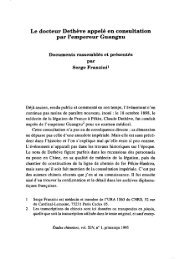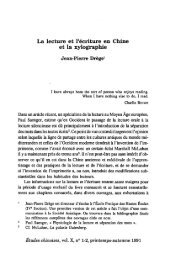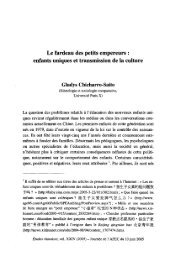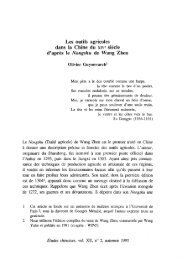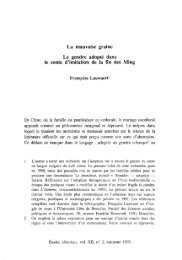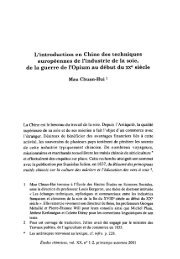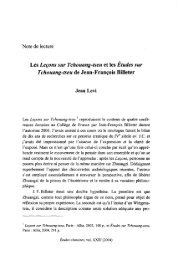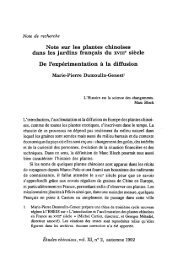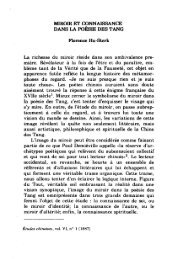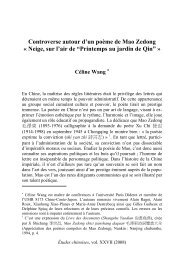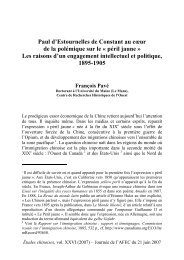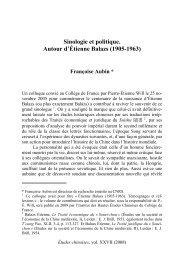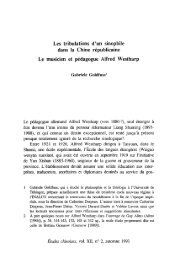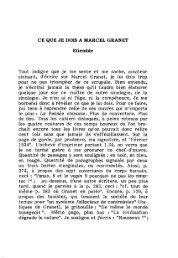Create successful ePaper yourself
Turn your PDF publications into a flip-book with our unique Google optimized e-Paper software.
Comptes rendus<br />
forth, will be forced sooner or later to face squarely some basic aspects of<br />
historical explanation. For as Engels made clear in his attacks on the<br />
wretched Duhring, any notion that violence is an independent historical<br />
actor, and not yoked to the larger workings of économies, threatens the<br />
whole basis of économie and sociological interprétations of history.<br />
In the body of his text Perdue has already scattered occasional<br />
références to the variety of possibilities that history présents at any time.<br />
We hâve mentioned his unwillingness to explain the Qing conquest of<br />
Central Asia by invoking économie, political, or social forces alone. The<br />
conquest is above ail a décision by a human being, who faced other<br />
possibilities and might hâve made other choices. Perdue also spéculâtes a<br />
bit about alternate courses in Mongol history. Some joined the Chinese,<br />
others the Russians. The former hâve disappeared as a distinct group. The<br />
latter hâve their own republic in the Russian Fédération, with a population<br />
of 300 000 (p. 298-299).<br />
In his conclusion Perdue surveys much of the scholarship that was<br />
popular when he was in graduate school, as well as some that his own<br />
génération has produced, evaluating both in light of what his study has<br />
established. In ail cases he shows a refreshing and fully justified distrust of<br />
overly mechanical, deterministic, or theoretical approaches. None of the<br />
comprehensive théories of nomadic-settled interactions entirely satisfy<br />
him. Nor does world System theory. Nor do attempts to attribute China's<br />
difficulties in the nineteenth or twentieth centuries to factor endowments<br />
or global historical processes.<br />
Perdue makes sensé of history not by invoking some exogenous System<br />
of explanation, but rather by fully exploring events he narrâtes, fïnding<br />
their many causes, tracing their interconnections, and setting them in<br />
as complète as possible a context. Just as the completion of a circuit will<br />
lead a long string of bulbs to light up, so the successful linking together of<br />
historical causes and effects can create new illumination. This is what<br />
good historians do. Even for the well-documented events of Europe and<br />
America the task is not easy. For Central Asia, Russia, and the Qing, the<br />
task can appear close to impossible. With Peter Perdue we never know<br />
500



